Corrosion is a major challenge in water treatment systems, especially in cooling water treatment applications. Its impact not only reduces heat transfer efficiency but can also cause equipment damage, leaks, and even costly operational shutdowns. For this reason, the use of corrosion inhibitors is a strategic step in maintaining the reliability and longevity of the system.
What is a Corrosion Inhibitor?
Corrosion inhibitors are chemicals added to water systems to slow or stop the corrosion process on metal surfaces. Corrosion itself is an electrochemical reaction between metal, oxygen, and water that produces products such as rust (iron oxide) and can gradually erode materials.
By using a corrosion inhibitor, a protective layer will form on the metal surface that is susceptible to corrosion attack. This layer works by disrupting the chemical or electrochemical reactions that cause metal degradation, both on the anode and cathode sides of the corrosion cell.
In the context of a cooling system, the presence of inhibitors is crucial because the water used in circulation usually contains dissolved oxygen, minerals, and other contaminants that accelerate corrosion.
Read Also: How to Prevent Corrosion in Demineralization System?
Types of Corrosion Inhibitors
Corrosion inhibitors are classified based on their working mechanism, the two most commonly used are:
1. Anodic Inhibitors
Anodic inhibitors work by forming a passive layer on the metal surface in the anode area. This layer prevents the metal oxidation process, which is the initial step in corrosion. Generally, this type works by increasing the electrode potential beyond the passivation point, so that the metal becomes more electrochemically stable.
Examples of compounds that are included in anodic inhibitors are sodium chromate, sodium nitrite, and molybdates. However, their use must be careful, because in inappropriate concentrations, anodic inhibitors can actually cause local corrosion (pitting) if the passive layer is not formed evenly.
2. Cathodic Inhibitors
Unlike anodic inhibitors, cathodic inhibitors function to inhibit the reduction reaction at the cathode. This reaction usually involves the reduction of oxygen or hydrogen ions which play an important role in the corrosion process. Cathodic inhibitors work by forming a layer that slows the rate of oxygen diffusion or precipitating salt compounds in the cathode area to inhibit electrochemical activity.
Examples of cathodic inhibitors include zinc salts and polyphosphates. This type is usually safer because it is not very sensitive to concentration, but its effectiveness can be more limited than anodic inhibitors under certain conditions.
The Role of Corrosion Inhibitors in Cooling Water Treatment
In a cooling tower system, water circulates continuously through pipes, pumps, heat exchangers, and cooling towers. The metals used in this system such as iron, steel, copper, and aluminum are very susceptible to corrosion if not given proper protection.
Corrosion not only reduces the life of the equipment but also risks contaminating the system with dissolved metal particles, reducing thermal efficiency, and causing fouling. Therefore, the formulation of corrosion inhibitors in cooling systems is very important to:
- Form a protective layer against active metals
- Prevent damage to heat exchangers due to local corrosion
- Reduce the risk of downtime due to mechanical failure
- Maintain the overall chemical stability of the cooling water system
Often, corrosion inhibitors are used in conjunction with scale inhibitors and biocides, in an integrated program to control corrosion, scale, and microbial growth in cooling systems.
Read Also: How to Overcome Increased Hardness in Cooling Systems?
Corrosion Inhibitor Solutions from Lautan Air Indonesia
As a total solution provider for industrial water treatment, Lautan Air Indonesia has a complete portfolio of corrosion inhibitors designed for various applications, including cooling tower systems, chillers, and closed circulation cooling systems.
Lautan Air Indonesia’s corrosion inhibitor products have been formulated with the latest technology to provide optimal protection against various types of metals, including iron, copper, and aluminum. We provide:
- Phosphate and polyphosphate-based corrosion inhibitors, for multicomponent metal protection
- Combination products of anodic and cathodic inhibitors, for comprehensive protection
- Environmentally friendly and low toxicity formulations, in accordance with industry sustainability standards
- Corrosion inhibitors for make-up water systems with varying TDS and pH
Each cooling system has unique characteristics. Therefore, the Lautan Air Indonesia technical team is ready to provide support in the form of water condition analysis, product recommendations, and routine maintenance programs (operation & maintenance) to ensure your system’s performance remains optimal.
Protect Your Cooling System Today
Corrosion is the enemy in water cooling systems. By using the right corrosion inhibitor from Lautan Air Indonesia, you can extend the life of your equipment, lower maintenance costs, and significantly improve operating efficiency. Contact our team of experts today for a free consultation and find the best solution for your cooling water system.



